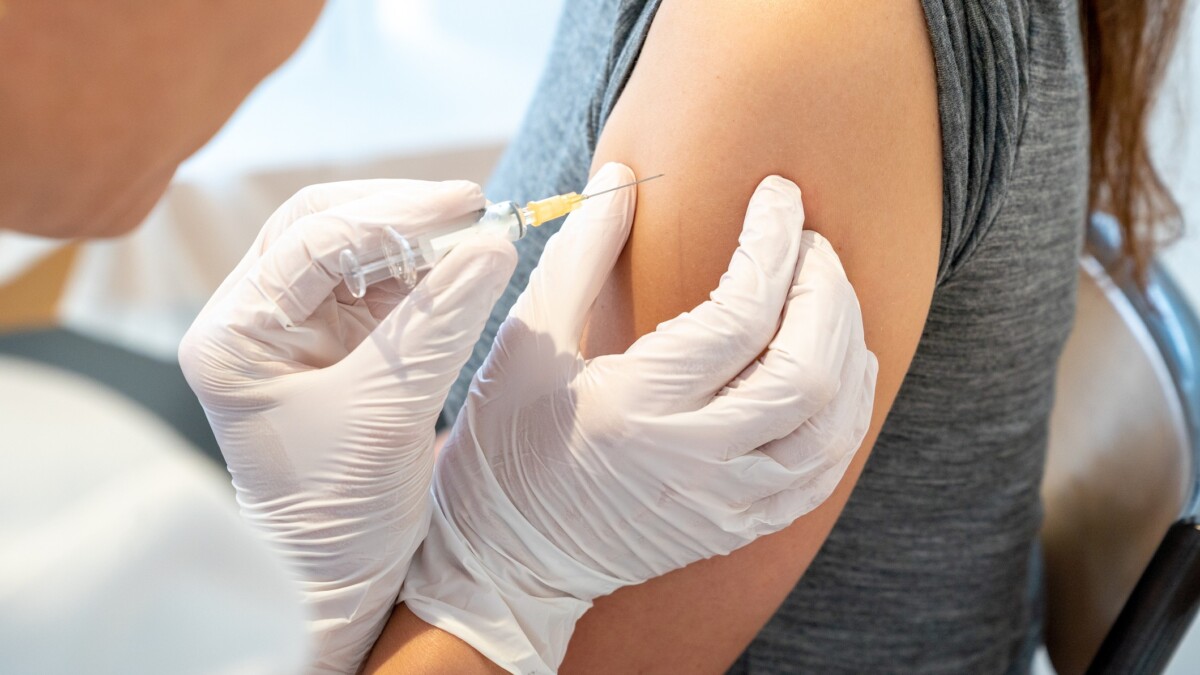Streptococcus pneumoniae (S. pneumoniae) infections result in pneumococcal diseases and are a major cause of illness and death globally(1,2). Pneumococcal infections range from sinus and ear infections to pneumonia and invasive pneumococcal disease (IPD)(1). As pharmacists, we have an excellent opportunity to check patient vaccination status, educate patients about the importance of pneumococcal vaccination, and administer the vaccine when appropriate. The following will briefly outline the importance of pneumococcal vaccines and the updated recommendations for IPD prevention.
Pneumococcal Disease
Pneumonia and invasive pneumococcal disease (IPD) are commonly caused by S. pneumoniae(2). Of all the cases of community-acquired pneumonia that require hospitalization, S. pneumoniae accounts for about 50%(3). A severe form of bacteremia, IPD may lead to sepsis or meningitis and can cause significant morbidity and mortality and lifelong complications(1,2). The disease is most common in the very young and older adults, as well as those at increased risk due to underlying risk factors(2). In Canada, there are many different circulating serotypes of S. pneumoniae, with the most common disease-causing serotypes changing over time. To protect against more S. pneumoniae serotypes, newer vaccines have been developed(1).
Risk Factors for IPD
The incidence of IPD increases sharply at 65 years of age and older, making age a major risk factor for IPD(1). The highest burden of IPD is found in adults ≥ 65 years of age, and especially in adults ≥ 85 years of age(4). Patients < 65 years of age with other risk factors (immunocompromised, long-term care resident, chronic heart, lung, kidney or liver disease, diabetes, cochlear implants, alcohol, tobacco, substance use disorder) are also at increased risk for IPD(3). The Canadian Immunization Guide has a helpful table containing details on conditions that increase the risk of IPD(2).
Prevention
The most effective way to prevent IPD is through vaccination(2). However, many Canadians who are eligible for pneumococcal immunization programs are unvaccinated. Since IPD results in significant mortality and has a high risk of serious health complications, immunization is important for prevention(1). As pharmacists, counselling and interacting with patients on a daily basis provides us a great opportunity to educate and encourage pneumococcal vaccination, especially in higher risk patient groups. Since pneumococcal disease incidence is increased by influenza, it is also important to encourage annual influenza vaccination(5,6). In addition to preventing influenza infection, the influenza vaccine has been shown to reduce the risk of pneumonia, hospital admission and death(6). IPD risk also increases 2-fold with smoking, so encouraging smoking cessation is also helpful(3).

Types of pneumococcal vaccines
In Canada, two types of pneumococcal vaccine formulations are available – the polysaccharide vaccine (23-valent vaccine, Pneu-P-23) and conjugate vaccines (Pneu-C-13, Pneu-C-15, Pneu-C-20 and Pneu-C-21)(1,3,7). Both types of vaccines use bacterial capsular polysaccharides to elicit an immune response, but in different ways. In polysaccharide vaccines, the polysaccharides act as antigens, stimulating B cells. This creates antibodies in a T-cell independent way, and does not create long-term memory, since only B cells are activated. In conjugate vaccines, the bacterial capsular polysaccharides are bonded to carrier proteins, enabling a T-cell dependent immune response. This results in a stronger immune response, creating CD4+ T cell epitopes that help with antibody production and immune memory(8). Thus, the Pneu-P-23 polysaccharide vaccine is less immunogenic than the conjugate vaccine, and in immunized, immunocompetent patients, antibody concentrations start to decrease after five years(2).
Each pneumococcal conjugate vaccine offers increasing coverage of serotypes of S. pneumoniae(3). Both the Pneu-C-20 and Pneu-C-21 vaccines cover the majority of serotypes in Pneu-P-23, but also have a longer duration of immunogenicity(3,7). For specific serotype coverage of pneumococcal vaccines, you can view the Canadian Immunization Guide serotype table here(2).
Pneu-C-21 (Capvaxive®) is the newest available pneumococcal vaccine for IPD prevention, approved in July 2024 for adults 18 years old and above(1,7). Pneu-C-21 covers 21 serotypes and offers cross-protection against 2 additional serotypes of S. pneumoniae(1). Pneu-C-21 was found to be noninferior to Pneu-C-15, Pneu-C-20 and Pneu-P-23 in two clinical trials(3). Compared to Pneu-C-20, Pneu-C-21 covers 10 of the same serotypes, with an additional 11 serotypes not found in Pneu-C-20(2,7). While Pneu-C-20 targets serotypes causing 56-65% of IPD, Pneu-C-21 targets the specific serotypes causing 77-85% of IPD (7). However, the nine serotypes in Pneu-C-20 not present in Pneu-C-21 include serotypes that are currently contributing to more IPD cases in younger adults, especially in Northern Canada(1,7). Therefore, local epidemiology will play a role in vaccine selection.
Current vaccine recommendations
The National Advisory Committee on Immunization (NACI) recommendation is to give one dose of Pneu-C-20 or Pneu-C-21 to all eligible adults (≥ 65 years of age or < 65 years with increased IPD risk), regardless of vaccination history(1,2,3,7). In most previously vaccinated cases (immunocompromised patients may be different), administer the new vaccine one year after any older pneumococcal vaccines(2,3,). Pneumococcal vaccines that are no longer recommended for routine adult vaccination are Pneu-C-10, Pneu-C-13, Pneu-C-15 and Pneu-P-23(3). The Canadian Immunization Guide states to only use Pneu-C-15 and Pneu-P-23 when Pneu-C-20 or Pneu-C-21 are not available(2).
Summary of recommendations for IPD prevention from NACI and OIAC (3,4,7)
| Age | Prior Vaccination | National Recommendation | Ontario Recommendation |
|---|---|---|---|
| ≥ 65 years | Pneu-C-13, Pneu-C-15, Pneu-P-23, status unknown or unvaccinated | Pneu-C-20 or Pneu-C-21 | Pneu-C-21 |
| < 65 years with risk factors for invasive pneumococcal disease | Pneu-C-13, Pneu-C-15, Pneu-P-23, status unknown or unvaccinated | Pneu-C-20 or Pneu-C-21* | Pneu-C-20 |
*Pneu-C-21 is only approved for patients ≥ 18 years of age.
NACI=National Advisory Committee on Immunization; OIAC=Ontario Immunization Advisory Committee.
The Ontario Immunization Advisory Committee (OIAC) recommends giving Pneu-C-21 for all adults ≥ 65 years of age, while continuing to recommend Pneu-C-20 for adults 18-64 years of age at increased risk of IPD. The exception is hematopoietic stem cell transplant patients, who, after consultation with a transplant specialist, should receive both Pneu-C-20 and Pneu-C-21 as per NACI guidelines (4).
Local epidemiology is important for vaccine selection. In Ontario, the serotypes covered by Pneu-C-21 are resulting in a greater burden of disease in adults ≥ 65 years of age and in immunocompromised individuals. On the other hand, the serotypes covered by Pneu-C-20 are resulting in a greater burden of disease in adults aged 18-64, especially in adults without immunocompromising conditions and in those facing homelessness(4).
Since serotype distribution is likely to shift, ongoing monitoring of IPD epidemiology is required(4). Healthcare providers including pharmacists should consider local epidemiology and check with their local public health unit when deciding between vaccines, as well as program factors(1,4). In Ontario, patients are only eligible in the program if they have not received all the publicly funded pneumococcal vaccines(4). In the pharmacy, vaccine selection will also depend on availability and coverage. Note that pneumococcal vaccines can be administered concurrently with other vaccines (e.g., COVID-19 and influenza)(1,2).
Summary
IPD is a severe form of bacteremia that can cause significant morbidity and mortality. The most effective way to prevent IPD is through vaccination, and many eligible Canadians remain unvaccinated. This presents an opportunity for front line pharmacists to help educate, encourage and administer both the influenza and pneumococcal vaccines. Pneumococcal conjugate vaccines offer a longer duration of immunogenicity than polysaccharide vaccines, and the newer conjugate vaccines offer more serotype coverage. On a national level, the recommendation is for all eligible adults to receive one dose of either Pneu-C-20 or Pneu-C-21. On a provincial level, the current recommendation in Ontario is for all adults ≥ 65 years of age to receive Pneu-C-21, and for adults 18-64 years of age with an increased risk for IPD to receive Pneu-C-20. Although local epidemiology, reimbursement models and clinical judgement will play a role in vaccine choice, the key is to get vaccinated!
Disclaimer: This blog post was developed by the Ontario Pharmacists Association (OPA) with an education grant provided by Merck Canada. The information provided in the blog is intended to provide pharmacists with general information and is not intended to provide or take the place of medical advice, diagnosis or treatment, or professional judgement. It is intended to supplement materials provided by regulatory authorities, and should there be any discrepancies, municipal, provincial, and federal laws, policies, and guidelines shall prevail. The information provided in this document are current at the time of publication. The decision for use and application of this document is the responsibility of the user. OPA expressly disclaims responsibility, and shall have no liability for any damages, loss, injury, or liability whatsoever suffered as a result of reliance on the information contained in this resource.
- Public Health Agency of Canada. Summary of National Advisory Committee on Immunization (NACI) Statement of November 15, 2024: Recommendations on the use of pneumococcal vaccines in adults, including PNEU-C-21. November 15, 2025. [240598]. Cited September 23, 2025. Available from https://www.canada.ca/en/public-health/services/publications/vaccines-immunization/national-advisory-committee-immunization-summary-recommendations-use-pneumococcal-vaccines-adults-pneu-c-21.html.
- Government of Canada. Pneumococcal vaccines: Canadian Immunization Guide. [updated April 2025; cited 5 October 2025]. Available from https://www.canada.ca/en/public-health/services/publications/healthy-living/canadian-immunization-guide-part-4-active-vaccines/page-16-pneumococcal-vaccine.html
- Loeb M. Community-acquired pneumonia. In: Compendium of Pharmaceuticals and Specialties [Internet]. Ottawa (ON): Canadian Pharmacist’s Association, 2025 [updated April 2, 2025; cited 2025 September 23]. Available from https://cps.pharmacists.ca.
- Ontario Agency for Health Protection and Promotion (Public Health Ontario), Ontario Immunization Advisory Committee (OIAC). Updated recommendations for pneumococcal immunization in adults, including the use of a 21-valent pneumococcal conjugate vaccine. Toronto, ON: King’s Printer for Ontario; July 2025. Cited 5 October 2025. Available from https://www.publichealthontario.ca/-/media/Documents/O/25/oiac-recommendations-pneumococcal-immunization-adults-pcv21.pdf
- Lexicomp. Community-acquired pneumonia in adults: Patient education – Disease and procedure. UpToDate Inc. [updated July 16, 2025; cited 2025 September 23]. Available from www.online.lexi.com.
- Mahamat A, Daurès JP, de Wazières B. Additive preventive effect of influenza and pneumococcal vaccines in the elderly: results of a large cohort study. Hum Vaccines & Immunotherapeutics. 2013 Jan;9(1):128-35.
- Pharmacist’s Letter Canada. Be Familiar With the Latest Pneumococcal Vaccine. Therapeutic Research Center. February 2025. [410241]. Cited September 23, 2025. Available from https://ca-pharmacist.therapeuticresearch.com/Content/Articles/PLC/2025/Feb/Be-Familiar-With-the-Latest-Pneumococcal-Vaccine.
- Creative Diagnostics. Conjugate vaccine vs polysaccharide vaccine. 2025. Cited 17 October 2025. Available from https://www.creative-diagnostics.com/conjugate-vaccine-vs-polysaccharide-vaccine.htm

